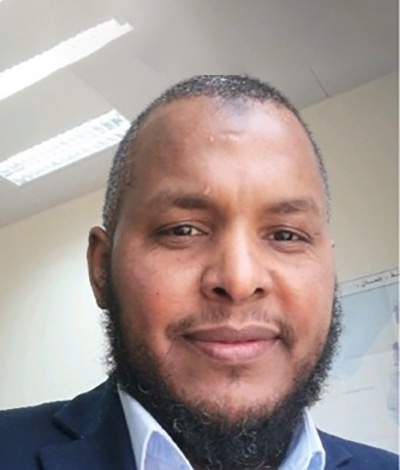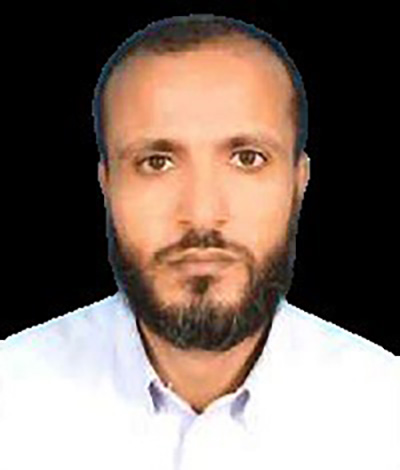Course Content
PART 1: High-Resolution Chemostratigraphy and Sequence Stratigraphy
This session focuses on the use of stable carbon and oxygen isotopes and spectral gamma-ray data for enhancing stratigraphic resolution, particularly in carbonate reservoirs. Participants will explore case studies from the Middle-Late Triassic Al Aziziyah Formation in Libya and the Lower Triassic Lower Mahil KS-1 Formation in Oman, examining depositional sequences, facies architecture, and sea-level changes.
Instructor
 Mohamed Salem Hamadi Moustafa, Sultan Qaboos University
Mohamed Salem Hamadi Moustafa, Sultan Qaboos University
Dr. Mohamed Salem Hamadi Moustafa is an assistant professor at Sultan Qaboos University (SQU) in Oman specializing in geology and focusing on carbonate sedimentology, diagenesis, and sequence stratigraphy. He earned his PhD from Texas A&M University, USA, with a dissertation on sequence stratigraphy and stable isotope chemostratigraphy. Dr. Moustafa has extensive teaching and supervision experience, guiding BSc, MSc, and PhD students in geological research, and has contributed significantly to curriculum development at SQU.
With over 9 years of post-PhD teaching experience, Dr. Moustafa has published multiple peer-reviewed articles, participated in international conferences, and received several academic awards. His work integrates advanced geochemical techniques with geological modeling, emphasizing real-world applications in petroleum geosciences.
Key Topics
- Introduction to sequence stratigraphy
- Overview of sequence stratigraphy
- Stable Carbon and Oxygen Isotope Analysis
- Overview of about stable isotopes
- Interpretation of δ13C and δ18O isotopes in relation to depositional environments and diagenesis.
- Spectral Gamma-Ray Data
- Overview of gamma ray
- Analysis of gamma-ray profiles (K, U, Th) to identify depositional shifts and improve facies correlation.
- Facies Distribution and Sequence Stratigraphy
- Linking isotopic and gamma-ray data to sedimentary facies for high-resolution stratigraphic models.
- Practical Sessions
- Hands-on analysis of isotope and gamma-ray data from Libyan and Omani outcrops.
- Group work to construct sequence stratigraphic models.
- Applications in Petroleum Geology:
- Integration of chemostratigraphy with field observations for better reservoir characterization and exploration success.
PART 2: Diagenesis and Reservoir Quality Assessment
This section delves into sandstone diagenesis and its impact on reservoir quality, highlighting the critical factors influencing porosity and permeability evolution in clastic reservoirs. The session will cover diagenetic processes such as cementation, dissolution, and compaction, as well as the role of these processes in hydrocarbon exploration and production.
Instructor
 Mohamed El-Ghali, Sultan Qaboos University
Mohamed El-Ghali, Sultan Qaboos University
Dr. Mohamed El-Ghali holds a BSc in Geology, an MSc in Sedimentology and Sequence Stratigraphy, and a PhD in Sedimentary Geology with a specialization in siliciclastic diagenesis and reservoir quality within the context of sequence stratigraphy. With 20 years of teaching experience across BSc, MSc, and PhD programs, he has supervised or co-supervised over 40 MSc theses and 2 PhD dissertations. Mohamed El-Ghali has also delivered specialized short courses for both academia and the oil industry. He has authored and co-authored numerous high-impact journal articles focusing on siliciclastic diagenesis and reservoir quality.
Key Topics
- Introduction to Sandstone Diagenesis
- Overview of diagenetic processes, including compaction, cementation, and chemical alteration.
- Compaction and Cement Types and Their Impact on Reservoir Quality
- Exploration of compaction and common cements like quartz, calcite, and clays, and their influence on porosity and permeability.
- Porosity-Permeability Relationships
- Understanding how diagenetic alterations affect the storage and flow properties of reservoir rocks.
- Diagenetic Modeling
- Techniques for predicting diagenetic changes and their impacts on reservoir quality through diagenetic modeling.
- Practical Sessions
- Case studies on sandstone reservoirs from Libya and similar settings, with group exercises on interpreting diagenetic features.
- Reservoir Quality Prediction
- Integrating diagenetic data with petrophysical analysis for better reservoir quality prediction.